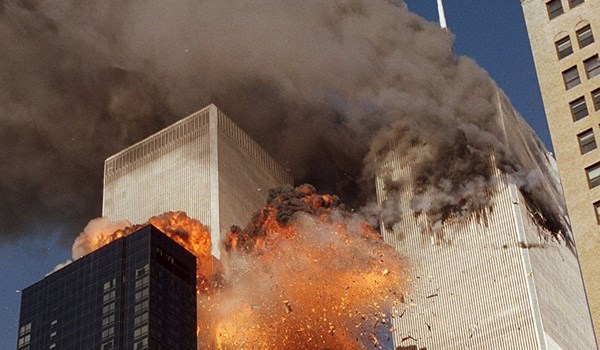
RNA - Here, a new generation of Saudi leaders is adjusting to what it sees as a resurgent Iran and a retreating United States. The Obama administration, forgetting its own contribution to Mideast chaos, points to Saudi policies it says have exacerbated regional conflicts, and says Riyadh has undermined Washington’s interests while under the protection of the US security umbrella.
The thing is, US relations with its sell-by-date Arab "allies" have never been in complete harmony as they are not designed to last forever. And Riyadh, “America’s despotic ally”, is no exception. After all, for Washington dispensable allies come and go - those that commit blood and treasure to help, those who are all talk, and the phony allies who want US protection while they work against it. Of the phony allies, most American officials, particularly those in the Senate and Congress, now publicly agree that Saudi Arabia is the most troublesome and dangerous, and they want to rethink their relationship.
To understand why this is happening, consider the following:
-Saudi Arabia is bankrupt because of low oil prices and the costly war on Yemen. Also, it is no longer useful for the War Party in Washington. Riyadh is desperate to force OPEC members to slash production in order to push up oil prices and buy back its ally. Remember, this is the same country that increased its oil production and created the current mess in the market. Nevertheless, Iran made it clear that it is not interested in the Saudi proposal, and guess what! The Saudis rushed to revise their offer to suit Iran, saying that their arch rival should be exempt from the production freeze or slashes.
-Saudi Arabia's war on Yemen in 2015 marked a shift from checkbook diplomacy to a more militaristic posture in the region. So far, the US government has provided Saudis with arms and intelligence to prosecute the dirty war, but there are strong indications of underlying disagreements between US, NATO and Saudi warmongers.
-The Saudis are still mired in a vastly expensive conflict in Yemen which shows no sign of winning. In Syria, the five-year-long effort by Saudi Arabia, together with Turkey and Qatar, to get rid of President Bashar al-Assad, has likewise failed. In the decade-long Saudi rivalry with Iran, today it is the Iranians who are having the upper hand. In between, who wants an ally which has expired, is no longer useful, and only brings embarrassment.
-Terrorism financing, the export of Riyadh’s austere interpretation of Islam (Wahhabism), human rights abuses against women and political activists, and the lack of democratic representation have equally created friction in its relations with Europe. To save face, the West's anti-terror coalition led by the United States wants to distance itself from Saudi-sponsored Takfiri terrorism and extremism.
-The Justice Against Sponsors of Terrorism Act, passed by Congress on September 9, was quickly vetoed by President Obama, on the grounds that it would be “detrimental” to America's national security interests and its key alliances. However, Obama will soon leave the White House while the US is increasingly ambivalent or hostile towards its old ally. On Wednesday, the Senate did override the presidential veto preventing the families of victims of 9/11 suing the Saudi government. It is a sign of Riyadh’s ebbing influence and relevance where it really matters at a time of deepening troubles at home and abroad.
Some might say the United States and Israel are trying to divert the world’s attention to Saudi Arabia as the perpetrator of the September 11, 2001 attacks, in an attempt to hide their own role as the main plotters of the deadly event that changed the world. Others might argue that the lawsuit would lead to an intrusive discovery process, and ultimately lead to the public disclosure of “American secrets,” potentially damaging its bogus War on Terror. All this and more might be true, but that's not the purpose of this write-up.
If these last 15 years are any indication, America’s allies have always been dispensable. A day will come when Saudi vassals will also be dispensable - despite their generous "services". That day, the bankrupt government of the United States will be more than happy to find an excuse, any excuse, to ratchet up anti-Saudi rhetoric and reintroduce the 9/11 Victims Bill (read Anti-Saudi Bill) in order to sue the Saudis, freeze their assets worth hundreds of billions of dollars, impose economic sanctions and trade restrictions, put them on terror list, and even launch regime-change war – directly or indirectly - on the bankrupt, sell-by-date, and “phony Middle Eastern ally”.
An American century of carnage and combat has yielded many lessons learned. The US has carried out a century of conflict, killing people from Nicaragua and Haiti to Germany and Japan; battering countries from the Koreas and Vietnams to Iraq, Syria, Libya, Yemen and Afghanistan; fighting on a constant basis since 1980. It wouldn't hurt that much if the War Party also adds the House of Saud to its long list of "state sponsors of terror", “hostile nations” and failed states, invading and creating chaos as a consequence.
847/940